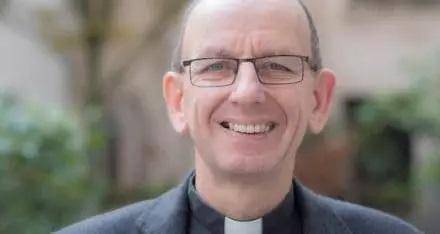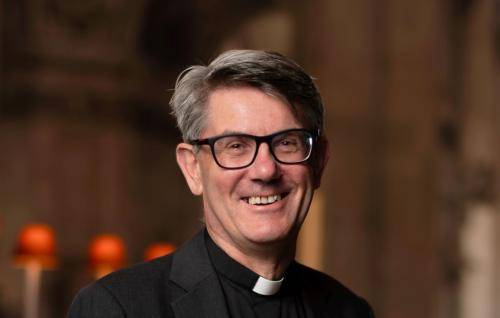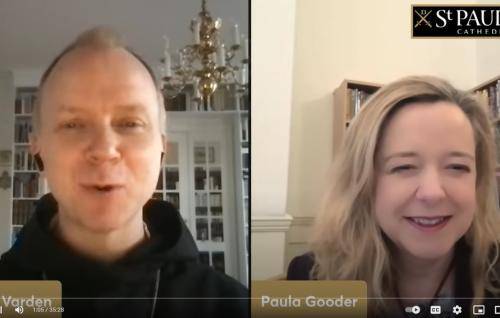On Prayer
1. Practicing Prayer
I really enjoy cooking but have never been good at following recipes. I can really irritate my wife when we’re having friends to dinner; she will ask me what I’m going to cook, and I will invariably reply that I don’t know because I haven’t been shopping yet.
Perhaps my allergy to many books on spirituality stems from a dislike of formulas. When a writer suggests that they have found THE way to pray, I will want to shout back: No, you have found a way to pray which you have found helpful. It is, of course, a complete over-reaction! But I do believe that there is something important in this.
I wonder what you have found helpful in your prayer journey over time? My guess is that, like me, you may have found different things, different ways of praying, helpful in different seasons of your life. The danger, I believe, is that we quest for the one, perfect way to pray. And we may have the image of holy people from the past who we think had got it sorted.
My experience is that there are as many ways to pray as there are people, and each of us will pray in different ways depending on our experience, our personality, preferences, our current situation, and so much more. The reality must surely be that there is no ‘right’ way to pray, and seeking to find a perfect prayer life will inevitably lead to guilt when we fail.
God makes us as individuals, and we know that as individuals we react differently. Perhaps the best piece of advice I’ve ever received on prayer is to simply offer some time to God and see what God wants of us in the space.
With Lent nearly upon us, could this be a good time to refresh our prayer lives by exploring new ways of being with, and listening to, God; seeking God’s will for our lives?
2. Exploring Prayer
We’re not on our own! Spending some time this Lent reflecting on and exploring our practice of prayer can be time well spent.
This may well be something you can do with a good book on prayer; there are loads out there, and I’m not going to burden you with more recommendations. But the health warning is, watch out for those who tell you the ‘right’ way to pray rather than suggesting that this is a way that they or others have found helpful. The company of a good author through Lent can be truly refreshing in our listening to God.
And it is really worth considering finding a Spiritual Director (or Spiritual Accompanier). Someone who has had training and who will accompany you along the path of prayer. A Spiritual Director will spend time in listening to you and will make suggestions of ways to enhance your prayer life. Importantly, they will pray with you. There are no experts in prayer, but there are those who have spent time in learning and reflection, and whose experience can be invaluable. You can find out more about Spiritual Direction, and find a Director, from the London Centre for Spiritual Direction.
It may also be that you have a friend or someone from church who you can pray with or listen to God with. No one’s experience of prayer will be the same, but listening and talking with others can help us reflect. I think it’s really important to take things up for Lent (as opposed to giving things up – though you can do that as well!). Taking up a conversation on prayer in Lent can help our ongoing conversation with God; in listening, in talking, in simply being still.
3. Praying Places
Have you ever visited a place where it seems that the veil between heaven and earth is thin?
Sometimes it is about a particular place and sometimes it can be more to do with what we bring; I think it’s always a combination of the two though. Assisi, the home of St Francis, has always been that for me. Places that have been prayed in for years, for millennia, can seem to hold the prayers of the people.
Many years ago, I had the privilege of serving as the Vicar of All Hallows, Twickenham. It is a fascinating church as it was originally All Hallows Lombard Street in the City of London, Christopher Wren’s last church. It was moved in 1939 / 40, at the beginning of the second world war, because of subsidence.
Twickenham are now fortunate to have one of Wren’s masterpieces complete with Tower, Grinling Gibbons woodwork and Renatus Harris organ. I always had a real sense that the prayers of the people over 300 years (and before that from the medieval church that it had replaced) had been brought down the Chertsey Road along with the furnishing, fittings and stonework. It was an easy place to get caught up in prayer.
Don’t get me wrong, I do fervently believe that we can, may and should pray anywhere. But there is something special about certain places that have been prayed in for centuries; places where ordinary people have found something of God. And it is good to use such places, so that our prayers are joined with theirs.
In the same way, I can remember a friend say he was rather jealous of me, after having been vicar of a church dedicated to St Michael and All Angels, I was then moving to be vicar of a church dedicated to All Hallows (All Saints). All those Angels and Saints to be praying alongside.
Perhaps he was half joking, but it makes a serious and wonderful point. As in the Eucharist Prayer we pray ‘…with angels and archangels and with all the company of heavenly…’, so we can find places to pray which hold the prayers of the saints and angels, and all who have gone before us in faith.
4. On Mountaintops and in the Mess
One of my favourite passages in the Gospels is the story of the Transfiguration (Mark 9:2-29). The Transfiguration is a beautiful and profound image, but what I particularly love about the story is what happens next.
Put simply, Peter, James and John have an amazing mountaintop experience with Jesus, where he is Transfigured before them; he meets with Moses and Elijah and is hailed as God’s Son by God the Father. They come down the mountain and immediately walk into a mess. The other disciples have tried to heal a boy and failed, and no one is happy. Jesus has to step in and sort things out before it gets really out of hand.
I wonder whether this rings any bells with your experience? A wonderful, mountaintop experience, brought down to earth with a bang? Perhaps returning from a wonderful holiday or a retreat or a good night out, or an evening with friends and returning to find… what? A relative sick, a house burgled, or perhaps just a horrid journey on an overfull train.
It is so tempting to want to stay on the mountaintop. The important thing is that the experience of coming off the mountain doesn’t invalidate the mountaintop experience, even if the edge feels like it’s been knocked off it. It’s just that we don’t live our lives on mountain tops (as Peter discovered when offered to make three booths, for Jesus, Moses and Elijah). We live our lives at the bottom of the mountain, amongst the mess of normal life.
When I was a curate my then Spiritual Director helped me move from theological college, where there was a daily rhythm of prayer and worship, to parish ministry by talking of ‘apostolic’ (following in the footsteps of the apostles) and ‘monastic’ prayer. Monastic prayer is the sort of prayer we can do when we can withdraw and find those still places and mountaintops. Apostolic prayer is what most of us are able to do most of the time, which often isn’t neat and tidy, but happens on the go, in the mess of life. And both are just as valid as each other.








